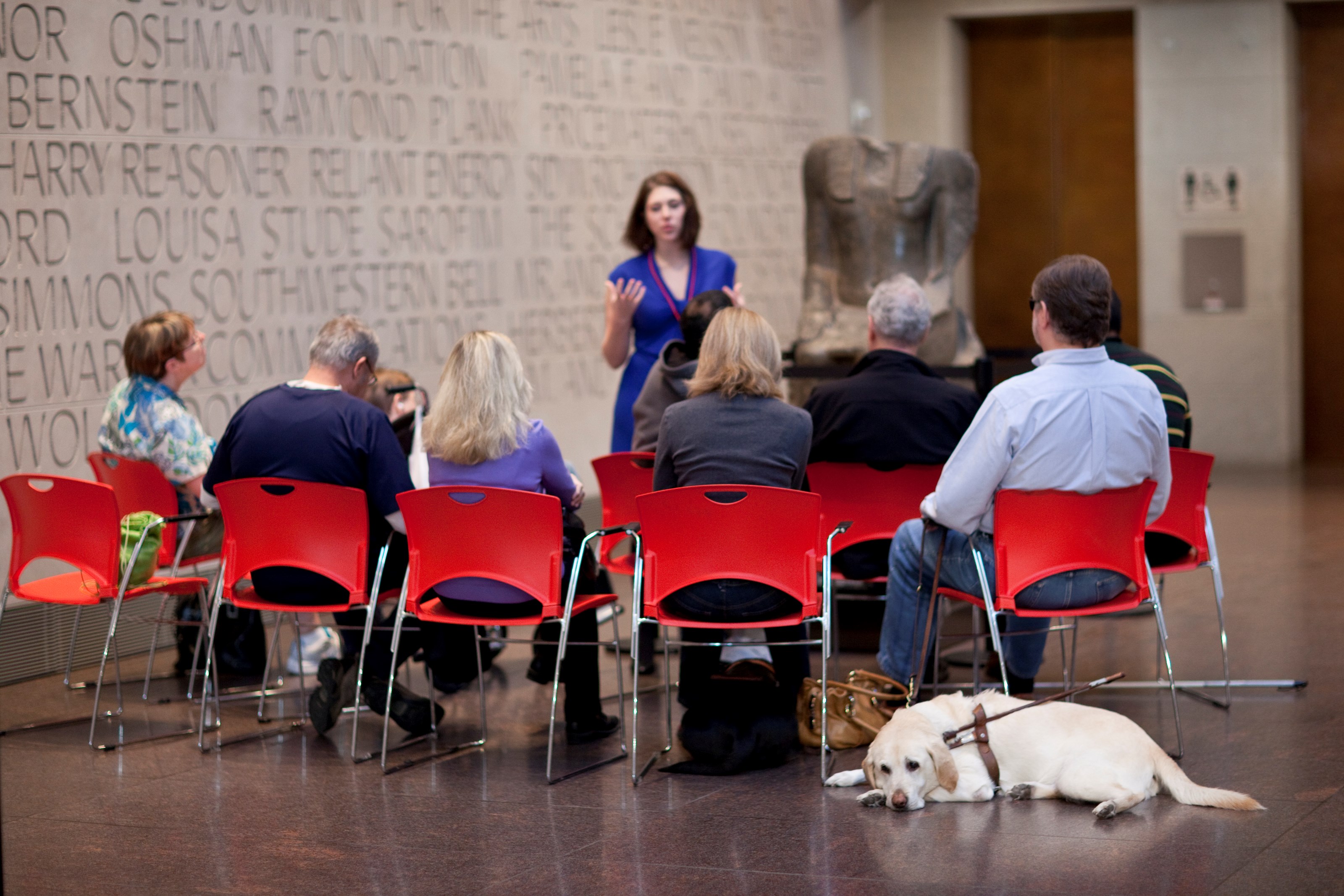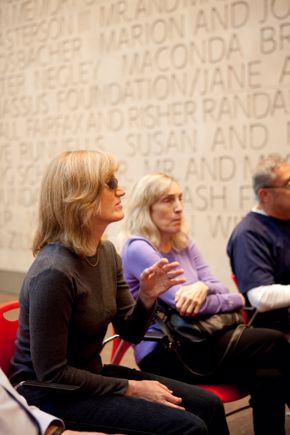Art Beyond Sight October 23, 2012
The Museum of Fine Arts, Houston, is proud to be one of many cultural institutions around the world participating in this fabulous program.
If you went blind tomorrow, would you still visit the art museum? If you couldn’t see art, would you still be able to have a positive art experience? The MFAH develops programming for the visually impaired as a part of Art Beyond Sight, an initiative started by the organization Art Education for the Blind.
So, where do we begin? We usually think of art in terms of the visual: color, composition, texture, technique, etc. But how do you explain the concept of "red" to someone who has never been able to see colors? When choosing which artworks to discuss, Art Beyond Sight instructors go beyond aesthetics alone, delving more deeply into what really makes museum objects important: culture.
Although we tend to think of art in terms of physical characteristics (e.g. “That is beautiful!” or “That looks like my kindergartener could have painted it!”), art largely involves much deeper concepts, narratives, political statements, historical contexts, and cultural significances that supersede the physical. You don’t have to be able to see a painting in order to learn why it is important.
Art Beyond Sight sessions begin with the instructor giving a brief, unbiased explanation of how the work of art looks. The group is encouraged to discuss this artwork, ask questions, have debates, and dig deep into the work to find meaning. This lively, healthy discussion is the marker for success for any museum program because it means that visitors are engaging with the art.
It is heartening to see that with such a minor modification to museum programming—finding a way to describe these museum objects effectively—a whole new group of individuals from the community can enjoy what the Museum of Fine Arts, Houston, has to offer.
If you know someone who could benefit from Art Beyond Sight, or if you would like to attend the program yourself, email accessibility@mfah.org for information.







